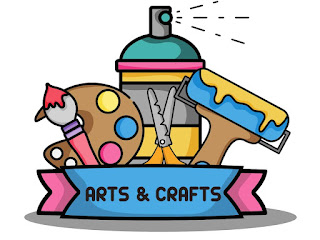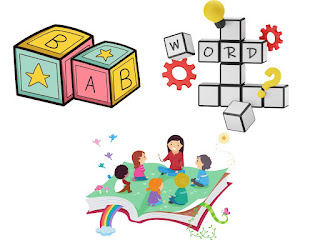Searching for a fun and effective way to support your
child's cognitive growth and development? Consider introducing them to
educational toys!
These toys are not only fun, but they can also have a
significant impact on your child's cognitive abilities. There are a variety of
options in educational toys that can help improve problem-solving skills,
creativity, and imagination, hence promoting cognitive development.
As Albert Einstein once said,
Play is the highest form of research.
Related Article: How Educational Toys Boost Cognitive Development in Children
Are
you curious about what type of educational toys can help your child’s cognitive
development?
Well, let’s look at some of them and learn how they can help
your child.
Types of Educational Toys that Promote Cognitive Development
Building and Construction Toys:
Building and construction toys, such as blocks, Legos, and building sets, are excellent for developing problem-solving skills and enhancing creativity and imagination. These toys allow children to experiment with different designs and structures, and to see the results of their efforts in real time
Puzzle and Problem-Solving Toys:
Puzzle and problem-solving toys, such as jigsaw puzzles, Rubik's cubes, and brain teasers, challenge children to think critically and creatively. These toys require children to use their problem-solving skills to figure out how to solve the puzzle or complete the task.
Arts and Crafts Toys:
Arts and crafts toys, such as drawing and painting sets, clay, and craft kits, allow children to express their creativity and imagination. These toys also help develop fine motor skills and hand-eye coordination.
Science and STEM Toys:
Science and STEM toys, such as chemistry sets, robotics kits, and coding games, allow children to explore the world of science and technology. These toys encourage children to think critically and creatively, and to develop an interest in STEM subjects.
Educational Games and Activities:
Educational games and activities, such as memory games, word games, and math games, challenge children to use their memory and problem-solving skills while having fun. These games can help improve academic performance and build confidence in children.
Language and Literacy Toys:
Language and literacy toys, such as alphabet blocks, word puzzles, and storytelling kits, can help children improve their vocabulary and language skills. These toys encourage children to learn new words and develop their reading and writing abilities.
Outdoor Exploration Toys:
Outdoor exploration toys, such as binoculars, bug catchers, and gardening kits, can help children develop their observation skills and explore the world around them. These toys also encourage children to learn about nature and science.
FAQ’s
What other skills can educational toys help to acquire apart from cognitive development?
Educational toys can also help develop social skills, emotional intelligence, and physical development.
How can I incorporate educational toys into my child's playtime routine?
You can incorporate educational toys into your child's playtime routine by setting aside dedicated playtime for educational toys, rotating the toys regularly to keep things fresh, and getting involved in your child's play to encourage learning.
Are there any risks associated with relying too heavily on educational toys for my child's cognitive development?
While educational toys can be a great tool for cognitive development, it's important to remember that playtime should also include unstructured play and socialization with other children. Over-reliance on educational toys can limit a child's imagination and creativity.
What age range is most appropriate for using educational toys for cognitive development?
Educational toys can be beneficial for cognitive development at any age, but they are especially important for children under the age of 3 when their brains are making the most neural connections. However, children of all ages can benefit from educational toys that are appropriate for their developmental stage.












0 Comments